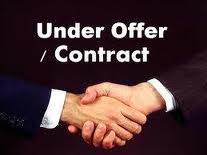Due Diligence Time
 When is it appropriate for a potential business buyer to ask for details of the seller beyond financial statements and tax returns?
When is it appropriate for a potential business buyer to ask for details of the seller beyond financial statements and tax returns?
Normally, in the process of buying a business, the buyer will find teaser information on our website or another business-for-sale site and will ask for more information. After initial formalities, such as meeting with an advisor, completing a Confidentiality Agreement, and filling out a personal financial statement, the buyer will have access to some financial history of the business.
If there is interest in the business based on basic knowledge of the business and industry and reviewing the financials, it would be time for the buyer to meet the seller in our office. The buyer will interview the seller and decide if this is still a business to pursue. Next, they meet the seller at the target business (after hours if necessary).
At this point, there is still much to learn. The seller will not generally give customer names, employee names, vendor or supplier names, access to banking information, copies of invoices, or anything else that might be divulging privileged information.
If there is serious interest in the business, but the buyer still wants details, he or she must take the next big step. Making an offer! The offer is contingent upon further due diligence! The sellers will rarely be open to sharing much more information without knowing that they are dealing with a real buyer and not a “tire-kicker” or potential competitor.
Remember, the seller is still trying to operate the business and doesn’t have time to waste. Once there is an accepted offer in place, the seller will be open to the buyer’s due diligence and the extra time and effort this will take from the business (since they are dealing with a real buyer!). If you are interested in buying or selling a business, check out the Apex website.

